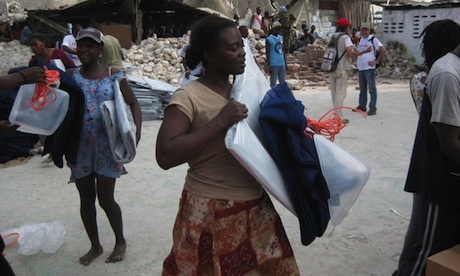It is one of the major blind-spots in international humanitarian aid. But recent and ongoing emergencies demonstrate the crucial role that local people have to play in the aftermath of disasters.
Much of the humanitarian work currently taking place in Syria and neighbouring countries would not be possible without networks of dedicated organizations which understand where need is greatest and how best to respond.
One of the key lessons from the Mali crisis, earlier this year, was that local people held an overwhelming advantage over their international counterparts in bringing aid to communities suffering both drought and conflict in rebel-occupied areas.
The immediate response to the Haiti earthquake in 2010 by Haitian organizations – many of whose staff had themselves lost family members and homes – showed just how important local action is in meeting urgent, life-or-death needs.
But, despite the lessons of successive emergencies, and though some international agencies do work in partnership with local actors, local and national organizations are repeatedly sidelined by the international humanitarian system as a whole. Read more.
Source: New Internationalist
Image: Response to the Haiti Earthquake by Caritas in January 2010, N Fischer/Caritas Switzerland
Additional reading
News category: Features.




